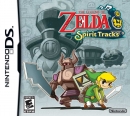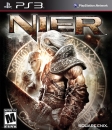An article about how great WSR truly is........
Editorial: The Magic of Wii Sports Resort
Better than Halo.
by Michael Thomsen
August 11, 2009 - I remember the disappointment of seeing Wii Sports for the first time. It was a few days prior to E3 2006 and, after much speculation about virtual reality and the immersive new adventures about "chosen one's," the true face of Wii turned out to be Playmobil Tennis. It was a bleak time in my life. I had been back from Peace Corps for a few months, was basically unemployed, and was hungry for narrative escapism. I wasn't going to be able to escape from anything with Wii Sports tennis.
Since then Wii Sports has blown past every other game in existence, including Tetris and Nintendo's other pack-in, to become the best-selling game of all time. The mundane familiarity that was disappointing for me, became a boon for everyone else. Wii Sports was an aesthetic keyhole through which the civilian world could peer into videogames and feel like they belonged. It revolutionized 3D game control, proving that an analog tether to physical action is more important than having an analog tie to your character's movement.
Like its predecessor, Wii Sports Resort comes in an earnest and approachable package. It imagines the world in huge swatches of green, blue, and white. Sunsets are flushed with warmth and color, while the nights are invitingly alive underneath the electric blanket of moonlight. Wii Sports has been handily criticized for being nothing more than a tech demo, five abstractly connected games that arranged in cold menus and High Score lists. Wii Sports Resort has imagined an actual place in which all of its play can happen.
Since Miyamoto co-opted King Kong and the damsel in distress to pull players into game worlds it has become de rigueur to hang progression along a linear narrative line. Progression in videogames has been about unlocking new items and more challenging set pieces while simultaneously learning more about an invented mythology. Wii Sports threw out any reference to story and said that analog mechanics in a suggestively designed environment was enough.
Wii Sports Resort is a dramatic evolution from that concept. While offering more than twice as many games as the original, all enhanced with the nuance and sensitivity of Wii Motion Plus, Resort remains a comparatively obscure collection of pastimes. Tennis and Baseball are immediately more recognizable and universal than archery and wakeboarding. They need more audience justification than the foundational sports in the original; they need a King Kong and a princess in a castle.
For Resort, this comes in the form of WuHu Island. The opening moment of the game has you skydiving into this island, first seen in WiiFit, establishing it as the interactive hub in which the game is going to take place. You'll still navigate to all the different games and modes through a menu screen, but there's a noticeable overlap in the setting for all the activities. You'll fight waves of sword attackers on the same bridge that you will have shot arrows over. You'll see the volcano and lighthouse looming in the horizon while you scoot through the ocean on a Jet Ski or bike through a mountain pass.
Resort adds to the geographic association with the Air Sport section where you're given five minutes to explore the island in a plane. You can collect small icons that offer one and two sentence factoids about eighty different points of interest on the island. At first glance, this felt like throw-away mode. Something that was included as a low-key palate cleanser in between some of the more demanding challenges. The longer I played the more I found myself identifying experiences I'd had in previous session as I flew over them. Flying through the small forest outside of town, I remembered the sword fight I had there. Flying over the pond halfway up the mountain, I could see the patterns I had cut through the water in my canoe.
While I had been busy trying to outdo other people's scores in individual events, I found there was an embedded history in the world that I didn't even realize I was keeping track of. But I was. Games like Fallout 3 and Grand Theft Auto IV have been praised for their emergent narratives, putting players in open-ended worlds where they are free to pursue their own agendas. Resort offers an even more sophisticated example of gameplay as narrative.
There are no accent-twinged monologues nor is there a spiderweb of side quests, instead there is a record of all the interactive events you've done in the game and an ability to pull back to a god's-eye view point to see how it all fits together. Instead of pre-planned quest lines or wrought performances from voice actors, the drama is self-determined. You created your own set of objectives within the rules of the game world, you came up with a strategy for accomplishing them, and you're given a frame of reference to wallow in the after-effects. It's not literature crammed into a hidden locker, nor cinema draped across a linear corridor crawl; it's pure game narrative.
What makes Resort so much more impressive is the sheer variety of different game mechanics, and the unparalleled depth contained in each one. Most games are created from the outside in. A genre is settled upon, a core mechanic is delineated, and then ten hours of variation on that mechanic are implemented. In 3D Mario's, the mechanic is collection and exploration, in Gears of War it's aiming and shooting. The variety necessarily exists in the levels because the mechanics remain comparatively static throughout.
In Resort, the mechanics are secondary to the overall theme. It's a vacation game. It's not about archery or wakeboarding. It's about escape. Nintendo has created a grab bag of tangential mechanics sprung from the central themes of escapism and relief form a world without the thankless constraints of daily life. Compare the mechanical elements involved in archery to those found in Gears of War, for instance.
In Gears you must find a safe location to anchor yourself so that you can move into the next phase of aiming and shooting. You'll need to think tactically about where you want to go and how long you can afford to stay there before you become vulnerable, but the objective in most every case returns to moving an absracted cursor around the screen and keeping it aligned with an enemy character.
In Resort's archery you hold the Wii remote vertically, using muscle memory and coordination from your back through to your wrist to keep the aiming cursor aligned. You hold a button to enter the firing mode, pull back the nunchuk at varying speeds to affect how quickly you zoom in on the target, all while keeping the left side of your body rigidly focused, and then release the Z button to fire. Instead of being able to spray bullets or having aim assist to make up for inaccurate aim, Resort engages your whole upper body in an analog fashion.
It's subtle enough that your breathing can throw off your aim. With an analog stick, you use your right thumb and can always disengage to freeze the aim in place. There are no such moments of disengagement in Resort, you must consciously control your whole body from start to finish. To offset for the lack of tactical movement you're given wind resistance, increasing distance, and targets that move from left to right.
There are eleven other systems in the game, each with their own dramatic sense of connectedness. While you rarely have control of your character's movement, you always have control of the action in an exacting way. In other 3D games you can move your player wherever you want, but the actions are tethered to a choice of a few different button presses that trigger pre-scripted animations. The player is less the actor and more the director. With Resort you participate, your actions are the narrative, they become the depth of the experience.
What's even more striking is the use of Mii's to flesh out the background of WuHu Island. This has been established precedent on Wii since the original Wii Sports, but Resort uses the Mii mingle option to import Mii's from around the world to build out a communal backdrop. The more I played, the more I began to notice strange new Mii's that I hadn't created and weren't part of the standard array of Nintendo-created competitors built into the disc. Kanye West was suddenly appearing in the stadium during my sword fights. Heidi Montag was now cycling beside me as I tried to cut around a bend in a mountain road.
I had no idea where they came from or who had created these plasticine reductions, but some other human playing Resort had. The backdrop of my own escape from reality was the caricatured jewels of other players' imaginations. It was like a series of discoveries, getting a surprising note in a bottle from some other person in a language that was simplistic and unintelligible. Why would someone create a limbless Heidi Montag and send her to populate my Resort town? Nintendo has given its players the emergent tools to express their crudest personality fixations and allowed them to build a decorative backdrop from that social netting. The result is a simulated environment that feels surreal, connected, and perpetually in-flux.
Wii Sports Resort, like its predecessor, is one of the greatest games ever made. In every aspect, it offers an experience that could only happen in game. Its systems are carefully balanced, fantastically sensitive, and take place in a narrative web that rewards continued play. While it lacks a clear plot, dramatic scripting, characterization, and impassioned acting, those are all artifacts from older media. None are intrinsic to the art of expression through interaction.
Never before in the history of games has there been a more imaginative collection of mechanics, nor a more perfectly attuned environment in which they can be experienced. Never before has there been a control mechanism that offers as much depth and pure analog sensitivity. Never before has the unadorned moment of action had so many different factors come to weigh on it just as the player reaches the cusp of committing to a move.
Can games make us cry? Can lines of code be poetic? Can a product be a personal expression? Are games art? When we look back in twenty years, I imagine Wii Sport Resort, like the first Wii Sports, will be one of the moments where the medium gave full voiced answers to all those vexing questions. This couldn't be a book. It couldn't be a movie. It couldn't be a song. It's a game. And it's the best anyone has yet done. We have embarked.
"Success really is decided at birth, and your life will never be better than it is right now. Sorry about that."





















































 (mostly)
(mostly)

